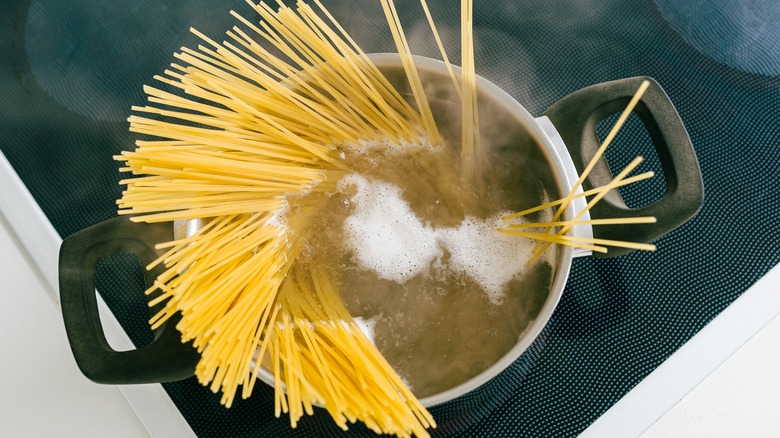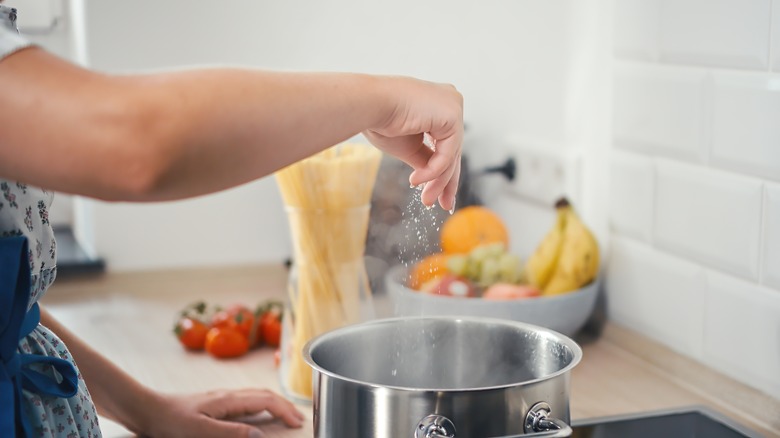Why Using Less Salt In Your Pasta Water Is Rarely A Good Idea
We've all heard it: When cooking pasta, your boiling water should be as salty as the sea. But how much salt should you really be using in your pasta water? It's tempting to add just a sprinkle or forgo the mineral altogether, since the Food and Drug Administration (FDA) recommends only consuming less than 2,300 milligrams of sodium per day — aka approximately one teaspoon of table salt. And yet some say to use a tablespoon of salt per pound of dry pasta or more if you're looking to add this element to your meal.
However logical it may sound to minimize the mineral in your pasta water, it's not actually as detrimental as you may think. For one, you won't actually be ingesting all that sodium. For every tablespoon of salt you dump in, a pound of pasta will only absorb about a quarter of it, which amounts to ¾ of a teaspoon for the whole pot. Also, salt plays an important role: It eats away at the noodles' sticky outer layer, which helps prevent them from clumping together. The mineral also flavors the water, which in turn enhances the taste of your dish from the beginning stages. And if you're in a rush, salt gets the water to boiling point a little faster.
Salt prevents your noodles from sticking together
So how much salt should you be using? While you don't want to skimp on the mineral, there is such a thing as using too much. You should not, in fact, try to mimic sea water, which is 3.5% salt, according to the United States Geological Survey. Using a tablespoon of salt per gallon of water is much more ideal advice, as it should give your noodles flavor without turning them stiflingly salty. If you're still unsure, try tasting your water as you go.
The rest of your dish's ingredients matter too — if your sauce, protein, and veggies have little to no salt, you may want to make up for it in the pasta water. But if you're using salty mix-ins like pancetta or anchovies, you may want to use a slightly lighter touch. If you forget to salt your water from the get-go, you can still save your dish. Feel free to throw it in while the noodles are cooking or even when they're draining in a colander. They won't absorb as much as they would in the pot, but it will still add some value.

